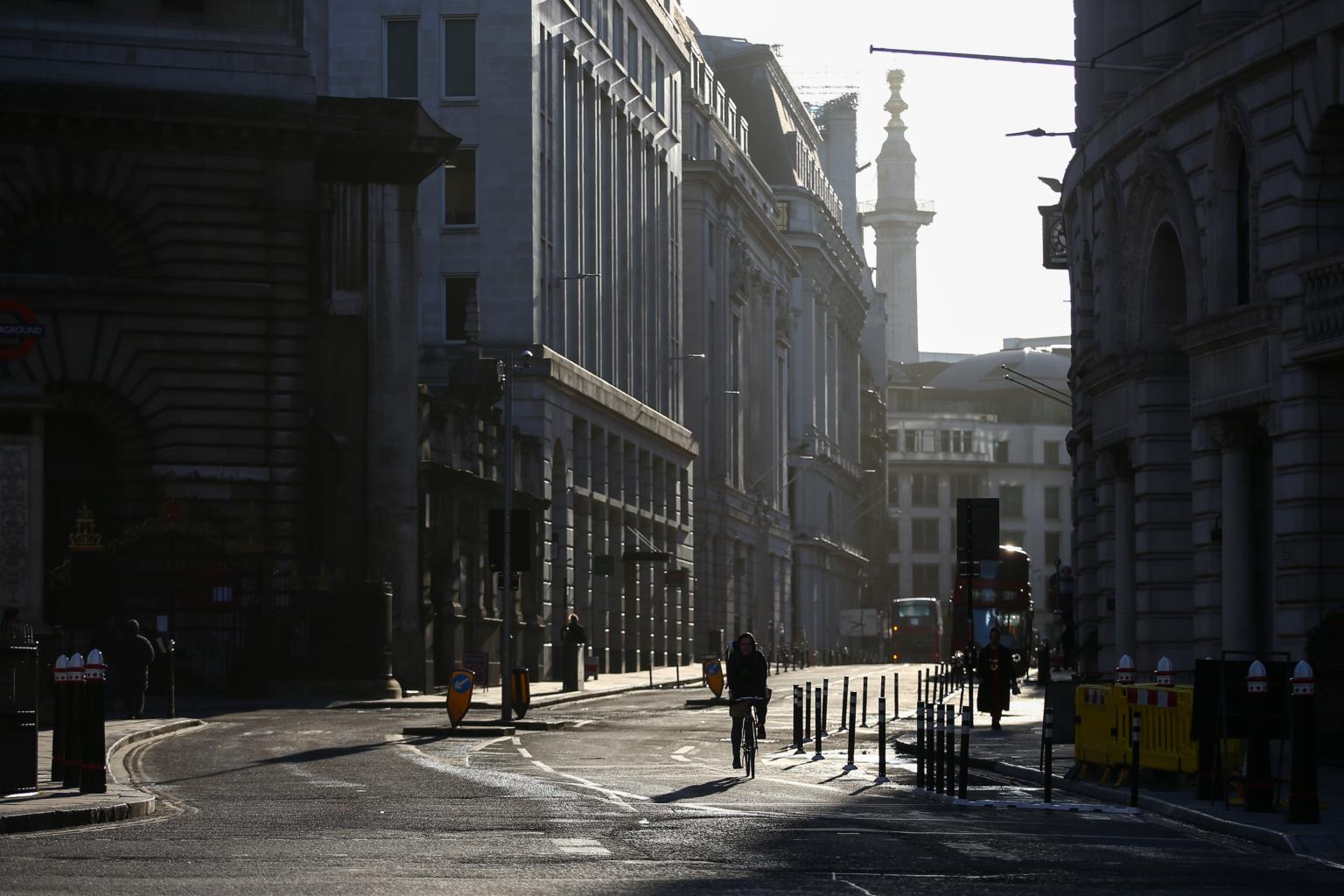The world's CFOs have a dire message for commercial property investors
Sign up now: Get ST's newsletters delivered to your inbox

While the pandemic has clobbered securities linked to commercial real estate, the damage to cash flows stands as the long-tail risk for investors.
PHOTO: BLOOMBERG
Follow topic:
NEW YORK (BLOOMBERG) - Property investors are about to discover just how much the global fallout from the coronavirus pandemic has spread from deserted and cast-off buildings to their bottom lines.
Hundreds of corporate executives tracked in earnings calls around the world in the past five months addressed the urgency to cut real-estate costs, according to an AI model trained by Bloomberg to scour transcripts. Tactics include cutting office space, accelerating branch closures, renegotiating rents on warehouses and even shutting data centres.
In 4,767 global earnings calls between July 21 and Dec 8, about one in eight machine-generated transcripts revealed that firms were rethinking their real estate needs, with many on track to save millions of dollars in the process.
While the pandemic has squeezed landlords and clobbered securities linked to commercial real estate, the damage to cash flows stands as the long-tail risk for investors. In an estimated US$10 trillion (S$13.3 trillion) global pool of properties held for investment purposes, the industry's main sources of capital - pension funds and insurance firms - count on the steady income to pay for their own long-term commitments.
"That's the key rationale for buying real estate. Most landlords are in effect pension and insurance funds and ultimately that's who is going to be paying for it," said Mr Adrian Benedict, head of real-estate solutions at Fidelity International in London. "If the whole central tenet of security of income is undermined through this crisis, you are storing up a world of trouble."
Investors are already hurting: A global index of real estate shares has shed more than 10 per cent this year as a gauge of all types of stocks surged about 13 per cent.
On the debt side, delinquencies on US commercial mortgages climbed to almost 6 per cent in November, according to the Mortgage Bankers Association. Risk premiums for BBB-rated commercial mortgage-backed securities have almost doubled since the start of the year, according to Bloomberg Barclays index data.
As the global recession deepens and companies brace themselves for the new normal that follows, business will require less space than pre-Covid. An October survey by the UK's Institute of Directors found that 74 per cent of companies planned to make more use of working from home once the pandemic subsides, with more than half intending to reduce the amount of workspace they use.
While the coronavirus vaccine has thrilled investors worldwide and sent real estate stocks rebounding, celebrations may turn out to be premature.
The kind of changes that officials have been discussing have often been of a permanent and structural nature, with the forecast savings being largely welcomed by company shareholders and analysts.
"We will implement a hybrid working model for many of our colleagues and reduce our real estate footprint by approximately 12 per cent."

